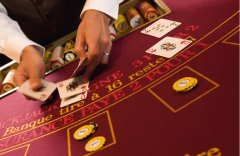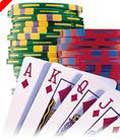体育博彩交易(二)
那么美国究竟有什么不同呢?原因之一可能是赌博公司对棒球比赛和美式足球比赛并不感兴趣(而网球比赛的丑闻却并不罕见)。另外一个原因可能是美国人对于赌球造成的破坏性后果有更充足的防范。在美国,棒球比赛的腐败早已有之。Henry Chadwick(以写了一本名为《棒球数据之父》的书闻名)在1870年说,我们的敌人通过赌球使自己的死敌输球,我们不能被我们的敌人甩下。棒球历史上最臭名昭著的假球事件发生在1919年,据称当时8名芝加哥白袜队的球员在参加世界巡回赛中接受了贿赂,因此白袜队在被普遍看好的情况下输给了辛辛纳提红人队。2年之后,尽管这8名球员逃脱了法律了制裁,他们仍然被终身禁止参加棒球比赛。
对8名球员作出禁赛处罚的是Kenesaw Mountain Landis,此人原本是一名联邦法官,后来被职棒大联盟推举为美国职棒的首席长官,他的任务就是扫除棒球中的假赌黑现象,重塑棒球运动的风气。自从Landis上任以来,即使是棒球运动中出现的轻微的违规行为也会招来严厉的惩罚。1980年代,一位破纪录的传奇打击手,Pete Rose,因为给自己的球队下注,被排除在棒球名人堂之外,甚至被MLB大联盟终身禁赛。
美国几乎所有体育联盟都将赌博拒之门外。除了NBA之外,NBA总裁大卫·斯特恩表示,合法博彩在NBA有着很好的发展机遇。其它的体育比赛对赌博就没有那么高的热情了。美式橄榄球大联盟NFL的发言人说,NFL拒绝一切形势的赌博。特拉华州曾经尝试修改法律,使得体育博彩合法化,这也遭到了NFL的强烈反对。和美国大学体育联盟NCAA一样,NFL对于新球员都会进行深入的反赌教育,这也起到了效果。NFL的赌球现象现已十分罕见,1963,NFL对两名参与比赛投注的球员进行了禁赛,1980年代也有一名球员因为相似的原因遭禁赛。
Declan Hill是一名研究赌博对体育比赛影响的专家,他表示,像NFL那样强硬的反赌姿态正是足球和板球运动所需要的。他的研究中包括了试图控制比赛者的录音,对于异常比赛的详细数据分析。他说赌球就像一场海啸一样,摧毁了大部分亚洲足球联赛,现在它的魔抓正伸向欧洲。
他希望博彩业成立一个独立的、国际性的反腐败组织,用以搜集信息和展开调查。每个国家的足协都应该成立一个独立的反腐败小组,包括了专门的热线电话,方便球员报告自己收到的来自希望操纵比赛的人的接触与威胁。
美国体育的高压反赌姿态起到了良好效果,然而另一个影响假球的因素就是金钱。1919年,8名白袜队打假球的球员中,有5人的年收入超过6000美元,另外三人年收入不足3000美元,换算成现在的水平大概是74000美元和37000美元。而2009年美国职棒大联盟球员的平均年工资是300万美元,这大概是3名巴基斯坦板球队的球员打一场假球,收受的贿赂还不及这个的10%。美国人对赌球始终保持了高压的姿态,但是篮球裁判的工资却太低了。有数据统计表明,美国大学篮球赛的一些赛事中出现了十分异常的比赛结果。
美式足球运动员和美国棒球运动员也许并不比他们的前辈或其他项目的同行更诚实,但是今天对于腰缠万贯的他们来说,被金钱打动是很难的。
译文So how and why is America different? One reason may be that foreign gambling syndicates are less interested in baseball and American football (scandals are rife in tennis)。 Another is that gambling-influenced corruption in sport has made Americans aware of its dangers. It used to be endemic in baseball in particular. Henry Chadwick, a writer known as the “father of baseball statistics”, declared in 1870 that “we claim to rank among our enemies…every professional gambler who aims to make rival clubs his tools”。 The sport’s most infamous match-fixing scandal happened in 1919, when eight members of the Chicago White Sox were accused of taking bribes to throw the World Series. Heavily favoured, the “Black Sox” lost to the Cincinnati Reds. Two years later the eight players were banned from the sport for life, despite having been acquitted by a jury.
Turning black to whiteThat ban came at the hands of Kenesaw Mountain Landis, a federal judge whom baseball’s owners hired as the sport’s first commissioner to restore the game’s integrity in the wake of the scandal. Since then, even minor infringements have attracted heavy sanctions. For placing bets on his own team in the 1980s, Pete Rose, a record-breaking hitter, remains outside the Hall of Fame (and cannot even set foot in a major league ground)。
American sports’ governing bodies tend to regard all gambling with disapproval. David Stern, who heads the National Basketball Association, says cautiously that legal betting on his sport “may be a huge opportunity”。 He is an exception. Most other sporting big shots are less enthusiastic. The National Football League would rather not have any gambling at all, says Brian McCarthy, a spokesman. When Delaware tried amending its laws to allow sports betting, the NFL was strongly opposed. The league makes a strong anti-gambling pitch to new players, as does the National Collegiate Athletic Association, another oversight body. Violations are now rare. The NFL suspended two players for placing bets on games in 1963 and one for similar reasons in the 1980s.
That kind of tough stance is urgently needed in soccer and cricket, says Declan Hill, a specialist on the influence of gambling syndicates on sport. His research has involved clandestine recordings of matchfixers, and detailed statistical analysis of anomalous events and results. He describes corruption as a “tsunami” that has wrecked most Asian football leagues, and is now perverting European soccer.
He wants the gambling industry to finance an independent, international anti-corruption agency to collect information and conduct investigations, on the lines of the existing body that deals with doping in sport. Each national football association should set up independent integrity units, he says, with hotlines for players to report approaches and threats by match-fixers.
Tougher policing has certainly worked in America. But another reason is money. None of the eight “Black Sox” made more than $6,000 a year, and three made less than $3,000. In 2009 dollars that would be around $74,000 and $37,000 respectively. In 2009 the average major-league baseball salary was $3m—more than ten times the amount allegedly paid to corrupt three Pakistani cricketers playing against England. The highest-profile recent instance of corruption in American sports featured a low-paid basketball referee. Statistical analysis of college basketball also shows highly unlikely patterns of scoring.
American football and baseball players may not be more honest than their predecessors or counterparts. But at today’s prices, few can afford to tempt them.
- 上一篇:体育博彩交易(一)
- 下一篇:马洪刚的另一项事业:劝谏赌徒戒掉赌瘾
相关推荐
随机专题



 您现在的位置:
您现在的位置: 
 足球返还率计算公式
足球返还率计算公式 体育足球网上博彩技巧心得
体育足球网上博彩技巧心得 百家乐这样玩才是决胜关键!
百家乐这样玩才是决胜关键! 百战百胜斗地主游戏技巧
百战百胜斗地主游戏技巧


